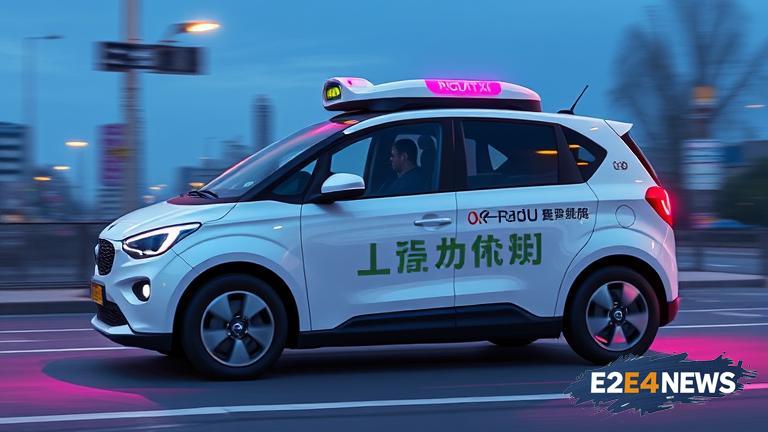In a groundbreaking move, Lyft has announced a strategic partnership with Chinese tech giant Baidu to launch a fleet of autonomous robotaxis in Europe by 2026. This collaboration aims to revolutionize the continent’s transportation sector, providing a safer, more efficient, and environmentally friendly alternative to traditional taxis. The partnership will leverage Baidu’s cutting-edge autonomous driving technology, Apollo, which has already been successfully tested in various cities across China and the United States. Lyft, with its extensive experience in ride-hailing services, will contribute its expertise in managing large-scale transportation networks. The robotaxis will be designed to navigate complex European city streets, adhering to local traffic regulations and ensuring a seamless passenger experience. The launch is expected to create new job opportunities in the region, both in the development and maintenance of the autonomous vehicles. As the project progresses, Lyft and Baidu will work closely with European regulatory bodies to ensure compliance with existing laws and regulations. The companies will also invest in public education campaigns to raise awareness about the benefits and safety features of autonomous vehicles. With the rise of autonomous transportation, European cities can expect a significant reduction in traffic congestion, air pollution, and accidents caused by human error. The partnership will also explore opportunities for integrating robotaxis with existing public transportation systems, making it easier for citizens to access convenient and affordable mobility solutions. Furthermore, the collaboration will drive innovation in the European tech industry, attracting new investments and talent to the region. As the world moves towards a more sustainable and connected future, the Lyft-Baidu partnership is poised to play a pivotal role in shaping the continent’s transportation landscape. The companies have not disclosed the exact locations for the initial launch, but it is expected that major cities such as London, Paris, and Berlin will be among the first to introduce the robotaxis. The partnership has sparked excitement among European policymakers, who see the potential for autonomous vehicles to transform the region’s transportation infrastructure. However, some concerns have been raised regarding the potential impact on traditional taxi drivers and the need for robust regulations to ensure public safety. In response, Lyft and Baidu have assured that they will work closely with local authorities to address these concerns and ensure a smooth transition to autonomous transportation. The companies have also committed to investing in retraining programs for taxi drivers, helping them adapt to the changing job market. As the launch date approaches, Lyft and Baidu will continue to refine their technology, expanding their testing and validation processes to guarantee the highest standards of safety and reliability. The success of this partnership will depend on the ability of both companies to navigate the complex regulatory landscape and build trust with European consumers. With their combined expertise and commitment to innovation, Lyft and Baidu are well-positioned to make a significant impact on the European transportation sector. The robotaxi launch is expected to be a major milestone in the region’s transition to a more sustainable and autonomous transportation system. As the project unfolds, it will be interesting to see how the partnership evolves and how it addresses the challenges and opportunities that arise. Ultimately, the collaboration between Lyft and Baidu has the potential to revolutionize the way people move around European cities, making transportation faster, cleaner, and more convenient for all.





